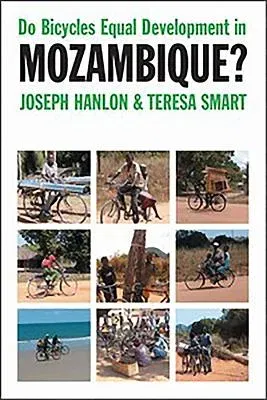Challenges some key assumptions of both the donors and the government
about how development can be achieved in Mozambique.
Is Mozambique an African success story?
It has 7 percent a year growth rate and substantial foreign investment.
Fifteen years after the war of destabilisation, the peace has held.
Mozambique is the donors' model pupil, carefully following their
prescriptions and receiving more than a billion dollars a year in aid.
The number of bicycles has doubled and this is often cited as the symbol
of development.
In this book the authors challenge some key assumptions of both the
donors and the government and ask questions such as whether there has
been too much stress on the Millennium Development Goals and too little
support for economic development; if it makes sense to target thepoorest
of the poor, or would it be better to target those who create the jobs
which will employ the poor; whether there has been too much emphasis on
foreign investment and too little on developing domestic capital; and if
the private sector really will end poverty, or must there be a stronger
role for the state in the economy?
This book is about more than Mozambique. Mozambique is an apparent
success story that is used to justify the present 'post-Washington
consensus' development model. Here, the case of Mozambique is situated
within the broader development debate.
Joseph Hanlon is Senior Lecturer at the Open University and the author
of Beggar Your Neighbours; Mozambique: Who Calls the Shots?; and Peace
without Profit (all published by James Currey) which have all made
influential interventions in the development debate; Teresa Smart is
Director of the London Mathematics Centre, Institute of Education.
Published in association with the Open University

